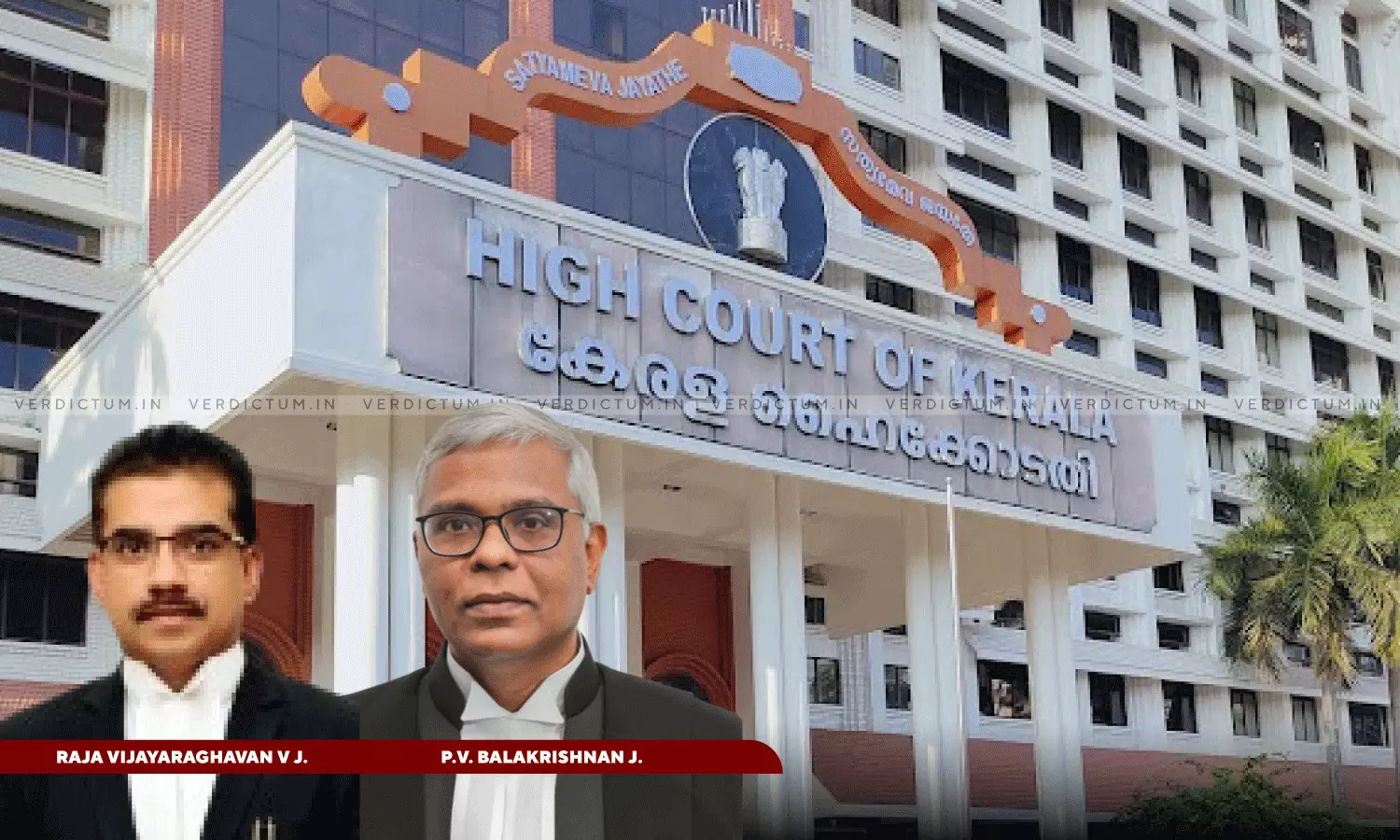
Kerala ISIS Module Case- Accused In Custody Entitled To Get Physical Copy Of Final Report And Not Just Digital Copy: High Court
 |
|The Kerala High Court granted bail to the accused challenging the Order of the Special Court for the trial of NIA (National Investigation Agency) cases.
The Kerala High Court held that an accused in custody is entitled to get physical copy of the final report and not just digital copy.
The Court held thus in Appeals filed by the accused challenging the Order of the Special Court for the trial of NIA (National Investigation Agency) cases.
A Division Bench of Justice Raja Vijayaraghavan V. and Justice P.V. Balakrishnan observed, “If the furnishing of documents to the accused, who is behind bars, is in the manner as narrated afore it cannot be stated that there is a fair disclosure from the part of the prosecution. As stated earlier, the accused, who is behind bars, will not be able to gather the details of the documents so supplied and defend himself, resulting in his right to fair trial being fettered. Hence, we find that the appellant is entitled to get a physical copy of the final report and the relevant documents, under Section 207 Cr.P.C.”
The Bench reiterated that the Constitutional mandate and statutory rights given to the accused place an implied obligation upon the prosecution to make a fair disclosure of the documents relied on by it.
Advocate M.A. Ahammad Saheer represented the Appellant/Accused while ASGI A.R.L. Sundaresen represented the Respondent/Union of India.
Brief Facts
As per the prosecution case, the first accused being an active arms and physically trained cadre of PFI and having involved in the murder of a prominent RSS/BJP leader in 2008, got acquainted with the second accused who was associated with India Fraternity Forum while in Qatar during 2012. Thereafter, he alleged to have willingly subscribed to violent ideologies and conspired with the second accused to join ISIS. When it did not materialise, they allegedly conspired to return to India and establish an ISIS module in Kerala and recruit gullible youths to the module. After returning to India in 2017, the first accused established the module and recruited the third accused and attempted to recruit the fourth accused to the module.
It was further alleged that the first and second accused conspired and committed crimes to raise funds for pro-ISIS activities along with the third accused and conducted recce of Hindu Temples and prominent persons of other communities for targeting, as well as looting them. They also allegedly propagated ISIS ideology through social media and other platforms. Hence, the prosecution claimed that the first accused committed the offences punishable under Section 120B of the Indian Penal Code, 1860 (IPC) and Sections 20, 38, and 39 of The Unlawful Activities (Prevention) Act, 1967 (UAPA).
Reasoning
The High Court in the above context of the case, noted, “It is not in dispute that the appellant has not been served with physical copies of the final report and documents, and was only served with digital copies of the same on 22/1/2024. It is to be kept in mind that the appellant is not a free bird and is one who is behind bars, from 18/7/2023 onwards. It is also not in dispute that the appellant has not been provided with any computers or gadgets for the purpose of deciphering the contents of the electronic records.”
The Court added that there is no case for anyone that such a facility is being provided by the jail authorities to the accused and if so, no purpose will be served in serving the charge sheet and relevant documents to him in digital form.
“This means that the accused will be totally disabled not only from understanding the contents of the charge levelled against him and the materials relied on, but also from advicing his lawyer in a proper perspective and effectively defending himself”, it further said.
The Court also reiterated that furnishing of the documents to the accused under Section 207 CrPC is a facet of the right of the accused to fair trial enshrined in Article 21 of the Constitution.
Accordingly, the High Court allowed the Appeal and granted bail to the accused on executing a bond of Rs. 1 lakh with two solvent sureties for the like sum each to the satisfaction of the Special Court.
Cause Title- Ashif v. Union of India (Neutral Citation: 2025:KER:30291)
Appearance:
Appellant: Advocates M.A. Ahammad Saheer, E.A. Haris, and Muhammed Yasil.
Respondent: ASGI A.R.L. Sundaresen